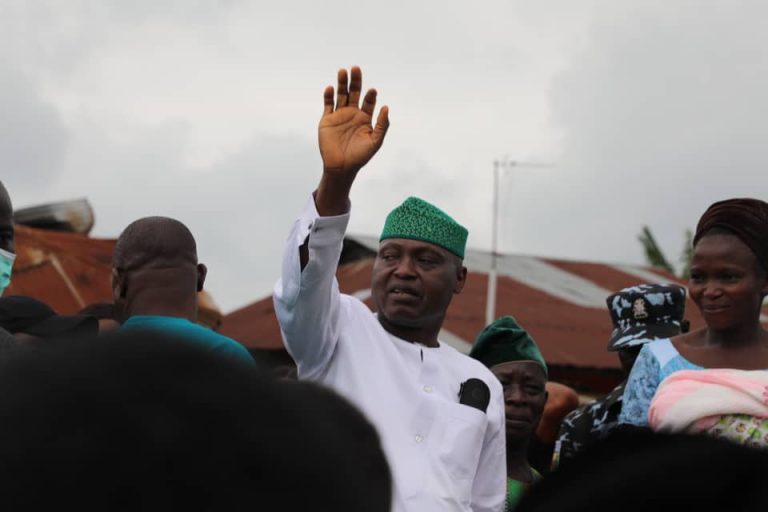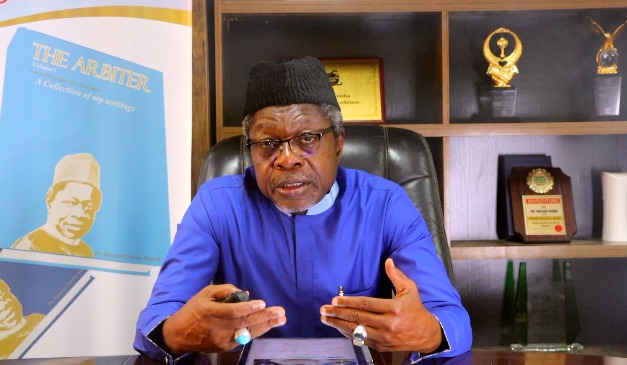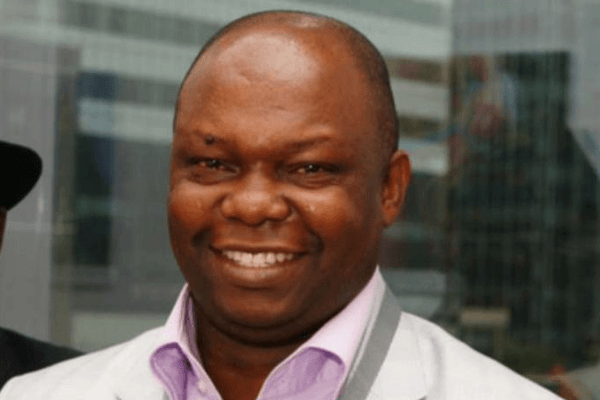Perhaps, the report last week by the National Bureau of Statistics that between January and September 2017, 4.07 million Nigerians lost their jobs summed up the terrible situation in the country. Although the economy came out of its first recession in 25 years, it is still bleeding jobs in a situation where the birth rate is growing at almost 3 percent. The 4.07 added to the 11.92 million already unemployed Nigerians raising the unemployment number to 15.99 million in the third quarter of 2017. That is not all. Millions of Nigerians are in temporary employment or to capture it more appropriately, are underemployed. According to the bureau, “total unemployment and underemployment combined increased from 37.2 percent in the previous quarter to 40 percent in Q3 2017.” So out of a total labour force population of 85 million, 34 million are either unemployed or underemployed.
That is enough problem to preoccupy every right-thinking government. But not in Nigeria! Here, politics for its sake – preoccupation with capturing and appropriating the spoils of power – is the ultimate consideration. That is why a government that promised to create three million jobs yearly will create policies and conditions that led to 4.1 million people losing their jobs in just nine months and it is still praising and hailing itself as the next best thing to happen to Nigeria after jollof rice. A government with focus will immediately realise that we are sitting on a time bomb and will prioritise job creation; for 34 million able-bodied youth – more than the population of many countries – are no joke and could set the country ablaze at any point in time.
The combined strength of the military, police, para-military etc are no match for these disgruntled and disenchanted youths. But no; our leaders continue to act as if everything is alright with the country. They continue to act in ways that are inimical to job creation; they continue to haggle and harass businesses and entrepreneurs that are helping to create jobs and continue to make it extremely difficult for those who want to create jobs to operate successfully.
Under a false and expired philosophy that only the government can guarantee equitable economic growth and development, the administration sought to control the commanding heights of the economy; to determine who gets what, when and how; who deserves to be helped to flourish and who must be smothered and crushed. This resulted in the open hostility and disdain being shown to the private sector that is supposed to create the millions of jobs for the jobless millions.
It appears that despite the surfeit of literature and live examples showing the failure of these expired socialist policies and the success of liberal economic policies, the government is hell-bent on state control and regulation of trade, state distortion and manipulation of interest and exchange rates and state industrial regulation through creation of monopolies or oligopolies. The consequences of these programmes have always been catastrophic just as we are currently witnessing in Nigeria.
But how do these leaders care? Despite succeeding regimes knowing of the disastrous consequences of these ‘control regimes’, most of them still choose to retain them for, as Robert H. Bates, argues, the policies generate huge political benefits for African authoritarian regimes, provide elites with sources of income and furnished means for transforming even declining economies into political organisations, enabling politicians to recruit political dependents, willing to fight – if necessary – to keep them in power.
As I write this, I am still holed-up in my house since December 22 unable to go anywhere with all my Christmas plans ruined due to the biting fuel scarcity and bedlam at filling stations. Countless times the government has been urged to deregulate the downstream sector and allow the private sector – better suited to running businesses – take over and ensure uninterrupted supply of petrol all year round, but the government has stoutly refused. It has continued to control the supply and pricing of the product with disastrous consequences as we are witnessing now. Although the Nigerian National Petroleum Corporation, NNPC, has been all over the media announcing that it is now supplying 80 million litres of petrol to the market daily against the 27 – 30 million average national consumption before the scarcity, the queues at the stations are yet to disappear and black marketers have been making a kill in the process.
The government has simply preoccupied itself with what it cannot do and have failed to do with it must or should do – perform its primary duty. Repeatedly, it has lied that it has defeated Boko Haram, but the sect’s vicious and successful attacks on the military and other so-called secure locations have always exposed the government’s lies. Recently, it was forced to declare it is withdrawing a whopping $1 billion from the Excess Crude Account to fight the raging insurgency – a move many suspect is a way of empowering party members and guaranteeing resources for 2019 elections. Rampaging and murderous Fulani herdsmen have continued to move around the country killing, raping, maiming and destroying whole communities without a word from the government or president.
Even the simple task of maintaining seamless governmental operations has proven too difficult for the administration to manage with constant inter-governmental squabbles and fights dominating the polity. The most shameful, of course, is the one between the Department of State Security, DSS and the Economic and Financial Crimes Commission, EFCC – all departments under the direct control of the presidency. Twice the President has forwarded the name of the Ibrahim Magu to the Senate for confirmation as EFCC chair and twice the DG of DSS – a kinsman of the president – has written damaging security reports on Magu and urging the Senate not to confirm him. The fight got to a head recently when officers from both departments drew guns on each other as the EFCC attempted to arrest a former DG of the DSS. What more can I say?
Naturally, one should hope for a better outcome in 2018 but the prognosis is bad. 2018 is election campaign year and as is usual in our climes, governance is suspended for politics. So, our prayers should rather be for 2019. Regardless, I wish you all a Happy New Year!





